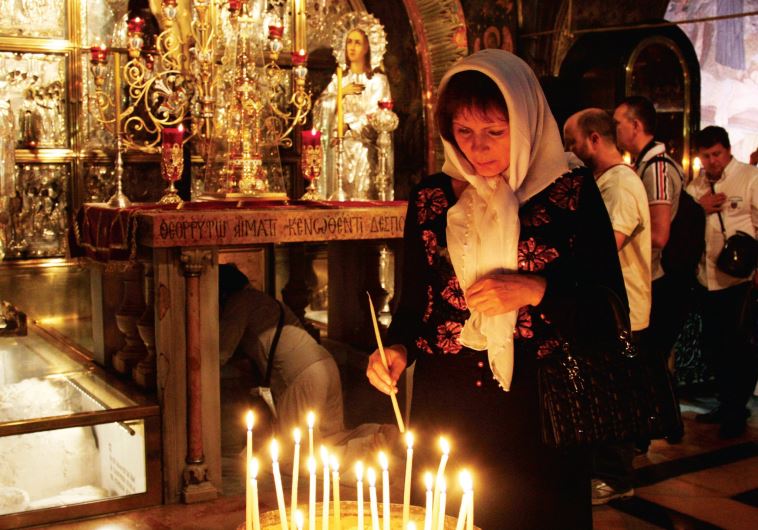An unholy alliance: Churches apply economic pressure on Israel
Several church denominations in the United States are becoming increasingly active in applying economic pressure on Israel.
 Lighting a candle at the Church of the Holy Sepulchre(photo credit: SHMUEL BAR-AM)
Lighting a candle at the Church of the Holy Sepulchre(photo credit: SHMUEL BAR-AM)